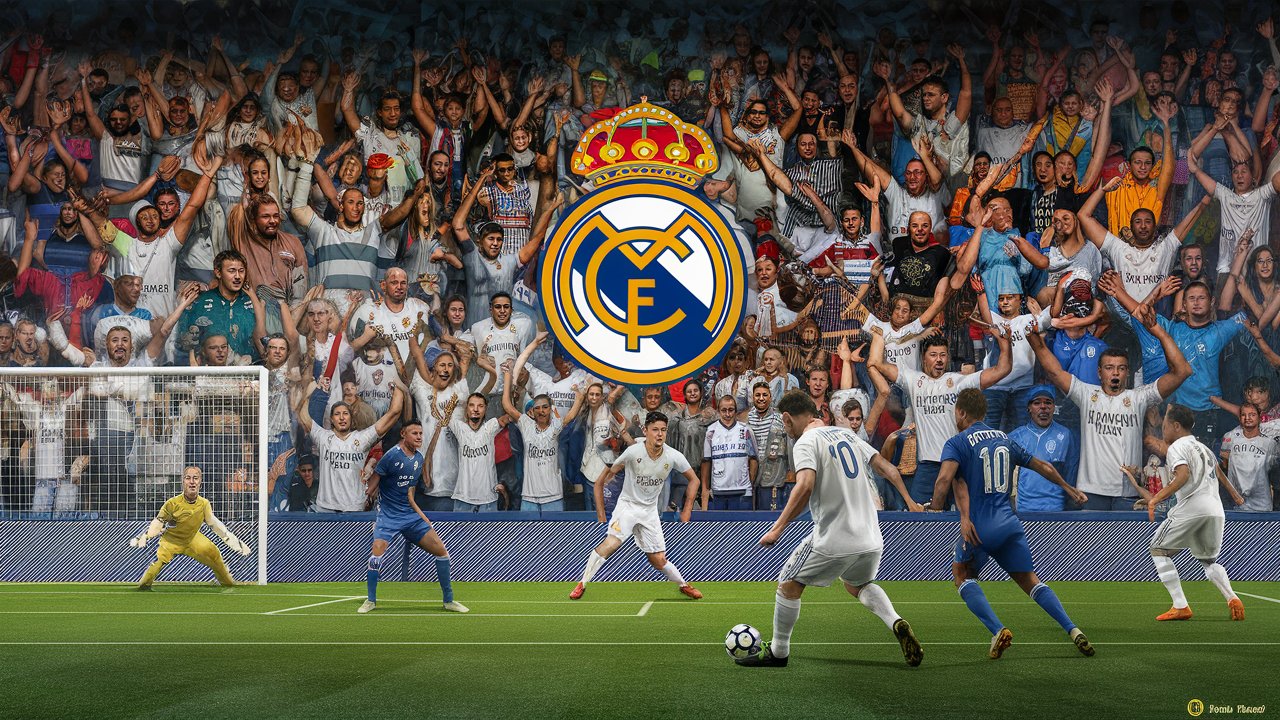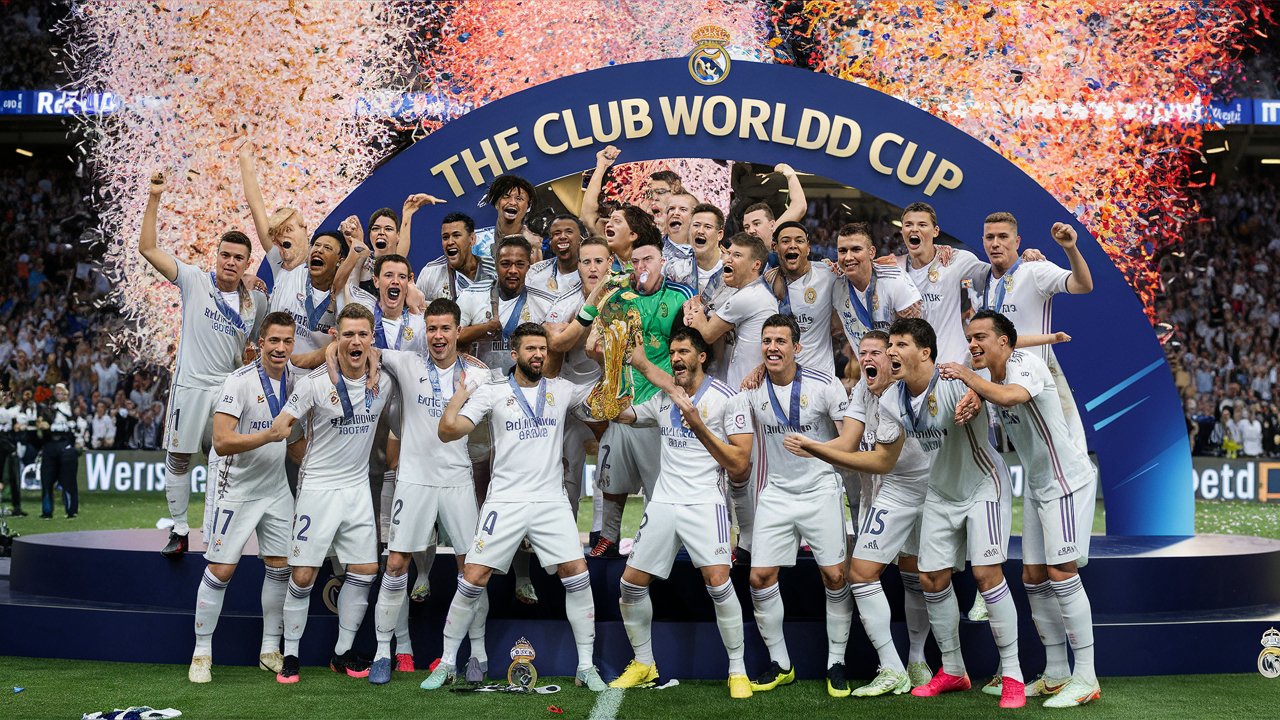Since its inception, the UEFA Champions League has been a stage where footballing giants clash, striving for glory and etching their names into the annals of history. In this grand theater of European football, one club stands head and shoulders above the rest, its name synonymous with excellence and triumph: Real Madrid.
The Spanish powerhouse, founded in 1902, has amassed a staggering number of Champions League titles, establishing itself as the most successful club in the tournament's illustrious history. Real Madrid's journey to dominance in Europe's premier club competition is a narrative woven with moments of brilliance, resilience, and unmatched ambition.
As of the latest update, Real Madrid has clinched the UEFA Champions League title an unprecedented 13 times. This remarkable feat is a testament to the club's enduring legacy of success and its unwavering commitment to excellence on the continental stage.

Real Madrid's first taste of Champions League glory came in the inaugural edition of the tournament in 1956, where they defeated French side Stade de Reims in the final to claim their maiden title. Since then, the club has consistently showcased its pedigree as a European powerhouse, captivating football fans worldwide with its breathtaking displays of skill and determination.
Throughout the decades, Real Madrid has been blessed with a constellation of footballing superstars who have graced the hallowed turf of the Santiago Bernabéu. From the legendary Alfredo Di Stéfano and Ferenc Puskás to modern icons like Cristiano Ronaldo and Sergio Ramos, the club's rich history is adorned with the names of players who have left an indelible mark on the Champions League.
One of the most iconic chapters in Real Madrid's Champions League saga unfolded in the late 20th century, during a period affectionately known as the "Galácticos era." Under the stewardship of then-president Florentino Pérez, the club assembled a star-studded lineup featuring the likes of Zinedine Zidane, Luís Figo, and Ronaldo Nazário. This formidable ensemble delivered three Champions League titles in five seasons, cementing Real Madrid's status as a dominant force in European football.
However, it was in the 2010s that Real Madrid embarked on a historic journey that would redefine the modern era of the Champions League. Guided by the tactical genius of managers such as José Mourinho and Zinedine Zidane, the club achieved unprecedented success, capturing an unprecedented four Champions League titles in five seasons between 2014 and 2018.
Central to this era of dominance was the transcendent talent of Cristiano Ronaldo, whose unparalleled goal-scoring exploits propelled Real Madrid to new heights in Europe. Ronaldo's virtuoso performances on the grandest stage elevated him to the status of a living legend and solidified his place in the pantheon of footballing greats.
In recent years, Real Madrid has continued to uphold its tradition of excellence in the Champions League, with the club's insatiable hunger for success driving them to compete at the highest level. Despite facing stiff competition from formidable rivals across the continent, Real Madrid remains a perennial contender for the coveted trophy, fueled by a relentless pursuit of glory.
As the curtain falls on each Champions League campaign, the legacy of Real Madrid shines ever brighter, a beacon of triumph and inspiration for future generations of footballers and fans alike. With each triumph, the club adds another chapter to its storied history, reaffirming its status as the undisputed kings of European football.
In the realm of the UEFA Champions League, there is one name that reigns supreme: Real Madrid. With 13 titles and counting, the club's unrivaled legacy of success serves as a testament to the enduring power of passion, perseverance, and the pursuit of greatness.
Real Madrid has a Club World Cup?

Yes, Real Madrid has indeed won the FIFA Club World Cup, adding to their rich history of international success. The FIFA Club World Cup is an annual tournament organized by FIFA, featuring the champion clubs from each of the six continental confederations, as well as the champion of the host nation's league.
Real Madrid's victories in the FIFA Club World Cup showcase their prowess on the global stage and further solidify their status as one of the most successful football clubs in history. As of my last update, Real Madrid has won the FIFA Club World Cup four times. Their triumphs in this prestigious tournament occurred in the following years:
-
2014: Real Madrid defeated San Lorenzo of Argentina in the final to claim their first FIFA Club World Cup title under the management of Carlo Ancelotti.
-
2016: Real Madrid secured their second FIFA Club World Cup title by defeating Kashima Antlers of Japan in the final, with Zinedine Zidane at the helm as manager.
-
2017: Under Zinedine Zidane's guidance, Real Madrid clinched their third consecutive FIFA Club World Cup title by overcoming Brazilian side Grêmio in the final.
-
2018: Real Madrid captured their fourth FIFA Club World Cup title, again with Zinedine Zidane as manager, defeating Al Ain of the United Arab Emirates in the final.
These triumphs in the FIFA Club World Cup further highlight Real Madrid's ability to excel on the international stage, showcasing their dominance not only in Europe but also across continents. With each victory, Real Madrid cements its status as a global footballing powerhouse, leaving an indelible mark on the sport's history.
![]()
When was Real Madrid founded?
Real Madrid was founded on March 6, 1902. The club was originally formed under the name "Madrid Football Club" before adopting its current name, "Real Madrid Club de Fútbol," in 1920. Throughout its rich history, Real Madrid has grown into one of the most successful and iconic football clubs in the world, renowned for its illustrious record of domestic and international achievements.
You must be logged in to post a comment.